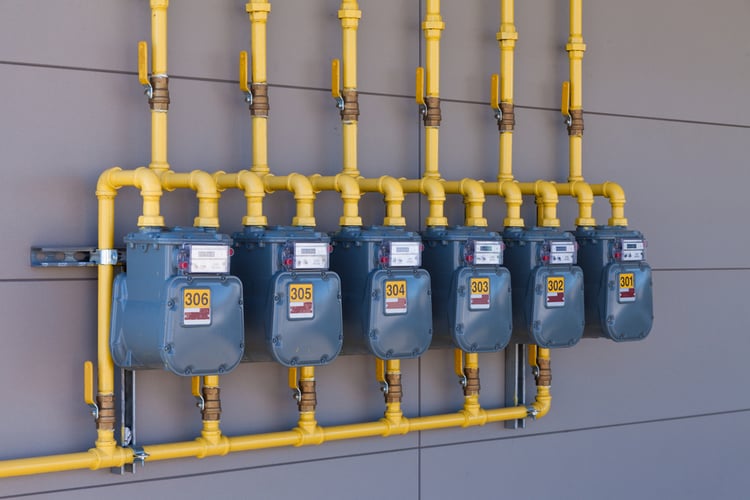Buildings depend on natural gas for their year-round space heating and cooling needs. Gas is used directly by furnaces and boilers during the winter, and indirectly by air conditioners during the summer, as it generates a large fraction of their electricity. When natural gas prices are high, it impacts year-round energy costs in buildings.
As of May 2022, natural gas futures are trading above $7 per million BTU, which represents a drastic increase from the previous year when gas futures were trading at around $3 per million BTU. BTU. The high price of natural gas can be largely attributed to the ongoing conflict between Russia and Ukraine, which has disrupted Russian fuel exports to the European Union. Europe has been purchasing liquefied natural gas from other sources, including the US, and high demand is driving up prices on the domestic market.
Get a professional energy audit and reduce your gas and electricity bills.
Buildings are susceptible to high gas prices as they depend on the fuel year-round, directly or indirectly. However, this also means that energy efficiency measures and renewable generation can achieve greater savings. A rise in gas and electricity prices is bad news for building owners who rely 100% on utilities, but efficient buildings are saving more compared to the previous year.
New York State Outlook: Gas and Electricity Prices

New York State is characterized by above-average electricity prices , and this trend is evident with current inflation rates. According to the US Energy Information Administration, the average kilowatt-hour price for NY residential increased from 18.78 cents/kWh to 21.58 cents/kWh between February 2021 and February 2022. In commercial sector, the average price increased by 15.22 cents/kWh. kWh to 17.40 cents/kWh in the same period.
Natural gas prices in New York have also risen sharply since the beginning of 2021, and this is reflected in US EIA data. Between February 2021 and February 2022, the price of residential gas increased from $10.87 to $13.09 per thousand cubic feet (MCF). Over the same 12-month period, commercial gas prices increased from $7.35 to $9.77 per MCF.
The following table summarizes energy price increases in NY state for the residential and commercial sectors:
|
Power supply |
Residential price increase |
Commercial price increase |
|
Electricity |
+14.9% |
+14.3% |
|
Natural gas |
+20.4% |
+32.9% |
Natural gas generates almost 70% of the electricity used in New York State and local production is very low in relation to consumption. As a result, NY depends on gas imports from other states and electricity prices are very susceptible to gas prices.
Combining Energy Efficiency and Renewable Generation in Buildings

Building owners can mitigate the impact of future price increases with a combination of energy efficiency measures and renewable production. Modernizing a building requires planning and large investments, but owners can realize quick savings by starting with the “low hanging fruit.” With professional energy audit and recommissioning services, you can identify quick measures that involve little or no investment.
Solar energy systems can also be installed relatively quickly on buildings and qualify for a 26% federal tax credit in 2022. As summer approaches and energy consumption increases due to air conditioning, they can be expected even higher kWh prices. However, when a commercial building has suitable roof conditions and sufficient space, solar panels can be installed in a matter of weeks.
To minimize the impact of high gas prices, New York homeowners and businesses should reduce the net consumption measured by their gas and energy meters. Energy efficiency measures can save both production factors, but only electricity can be generated on site. However, buildings can become fully electric at competitive costs through the use of high-efficiency heat pumps.
In New York City, there is an additional reason to convert from gas heating to electric. Natural gas will be banned in new buildings under seven stories after December 31, 2023, and in taller buildings after July 1, 2027. Existing buildings that undergo major renovations will also be subject to a natural gas ban after these dates.
The best starting point: a professional energy audit
With a professional energy audit , building owners can identify the measures that will allow them to achieve the greatest savings in relation to their costs. On the other hand, when building improvements are implemented without prior analysis, owners can end up spending thousands of dollars on measures that are not effective. Energy consultants can also help you qualify for grants, low-interest loans, and other financial incentives for building improvements.

